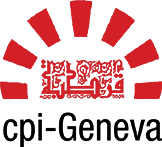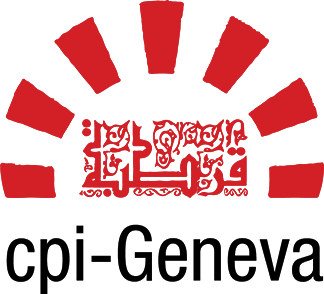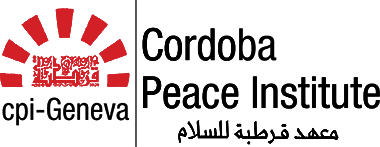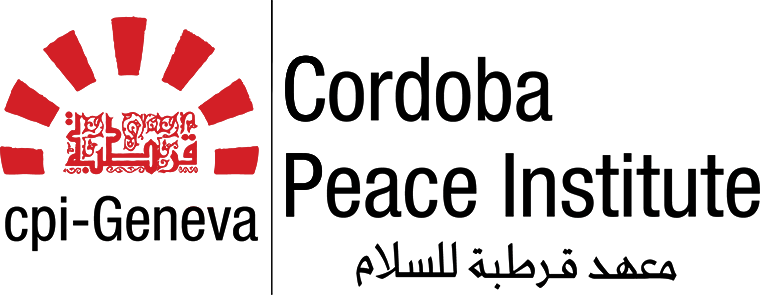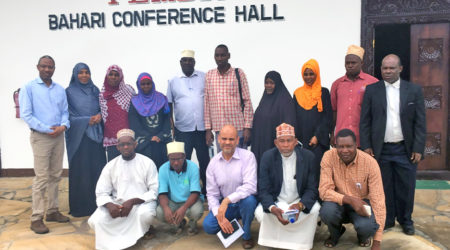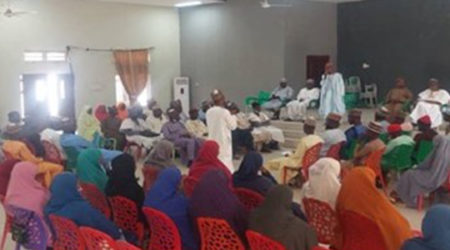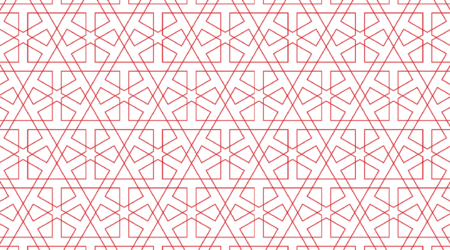The Cordoba Update 5/2016

| In line with the programmes and projects funded by partners of the Cordoba Foundation of Geneva, updates and information are included under the following themes: |
|
ISLAMIST-SECULAR RELATIONS /
RELATIONS ENTRE SÉCULIERS ET ISLAMISTES
No contribution in this section
TRANSITION AND POLITICAL PARTICIPATION /
TRANSITION ET PARTICIPATION POLITIQUE
Egypt, 1.3.2016: Egypt’s Justice Minister Proposes Legislation to Penalize Parents of Terrorists
Egypt’s Minster of Justice, Ahmed al-Zend, has proposed to change the controversial anti-terrorism law in order to allow the prosecution of parents or guardians of youngsters who join terrorist organizations. Explaining the rationale behind the new legislation, the Egyptian minister said that putting responsibility on the parents or guardians of young people who join terrorist organizations would give the guardians more control. This would, in turn, make recruitment efforts by terrorist groups more difficult.
Links for more information:
http://www.egyptindependent.com/news/new-legislation-penalize-parents-guardians-terrorists
http://egyptianstreets.com/2016/03/02/egypts-justice-minister
Egypt, 26.2.2016: Egypt’s Sisi for Sale on eBay
Egypt’s Abdel Fattah al-Sisi said he is so committed to solving Egypt’s debt crisis that he would go so far as to sell himself if he thought it would help. Within hours, the Egyptian leader was up for sale on eBay and soon the bidding was at more than $100,000 — not too bad for an embattled head of state. Sisi also asked Egyptians to make donations to the country by text. The remarks were made as he unveiled an economic development plan for 2030. He also said that excessive criticism of the government is contributing to attempts to bring down the state, telling Egyptians not to listen to anyone but him.
Links for more information:
https://www.washingtonpost.com/world/middle_east/egypts-president-says
http://www.bbc.com/news/world-middle-east
https://foreignpolicy.com/2016/02/24/going-once-going-twice-egypts-sisi-was-for-sale-on-ebay
https://www.washingtonpost.com/news/worldviews/wp/2016/02/25/someone-listed-egypts-president
Egypt, 2.3.2016: Mass hunger strike at Egypt’s infamous Scorpion prison
At least 32 prisoners held inside one of Egypt’s most notorious jails have gone on a mass hunger strike to highlight alleged abuses, including the beating of family members who come to visit. According to the independent Media Mada Masr, nine journalists -Hesham Gaafar, Magdy Hussien, Hassan al-Qabani, Ahmed Sabea, Hany Salah Eddin, Khaled Shalaby, Ahmed Salah, Mohamed Nwareg and Hossam al-Sayed – in response to the « slow death » they are facing.
The Arabic hashtag « Aqrab Hunger Strike » recently trended in Egypt, in addition to the #DyingToLive hashtag, which has gained some traction online. Detainees and their families called for the application of prison laws in Egypt such as the current standards of food, water, and visits do not abide by those stated in the laws, an official statement published on a Facebook page for families of Al-Aqrab’s detainees read. In a related incident, 16 local NGOs including the state-backed National Centre for Human Rights, demanded the establishment of a « independent investigation team to examine the conditions of the prisoners in Al-Aqrab.
Links for more information:
http://www.aljazeera.com/news/2016/03/mass-hunger-strike-egypt-infamous-scorpion-prison
http://www.dailynewsegypt.com/2016/02/15/inmates-families-assaulted-outside-al-aqrab-prison
http://www.alaraby.co.uk/english/news/2016/3/2/hunger-strike-enters-12th-day-in-notorious
http://www.dailynewsegypt.com/2016/03/06/407558/
http://www.dailynewsegypt.com/2016/03/01/alleged-violations-in-al-aqrab-prison-spark
Egypt, 3.5.2016: Egypt rights groups raise concerns over violations at UN Human Rights Council
Egyptian human rights organizations relayed concerns over escalating violations against human rights defenders at the 31st session of the UN Human Rights Council on Friday, demanding the release of those detained for exercising their right of freedom of expression. Cairo Institute for Human Rights Studies Director Bahey El-Din Hassan met with UN Secretary-General Ban Ki-moon, Norwegian Deputy Foreign Minister Tore Hattrem, and US Assistant Secretary of State for Human Rights Tom Malinowski to discuss the deterioration of human rights in the Arab world. The US State Department published statements from Deputy Secretary Antony Blinken’s speech at the session, in which he expressed US concern over police abuses and violations in Egypt.
Links for more information:
http://www.cihrs.org/?p=18216&lang=en
http://www.state.gov/s/d/2016d/253899.htm
http://www.madamasr.com/news/egypt-rights-groups-raise-concerns-over-violations
USA & Egypt, 26.2.2016: Kerry Defends US Stance on Egypt
Secretary of State John Kerry acknowledged a « deterioration » in Egyptian freedoms in testimony to the House Foreign Affairs Committee Thursday, but defended the administration’s decision to waive human rights conditions on aid to the country. « There are disturbing arrests, there are disturbing sentences, » he said, but also pointed to Egypt’s strategic importance to the United States, the competition among global players for influence in Cairo and the difficult security environment there. « We’ve got a huge interest in making sure that Egypt doesn’t go down into a more difficult status than it is, » said Kerry.
Links for more information:
https://foreignaffairs.house.gov/hearing/hearing-strengthening-us-leadership
http://www.cnn.com/2016/02/26/politics/egypt-u-s-aid-kerry-military-human-rights/
http://www.egyptindependent.com/news/kerry-defends-aid-egypt-us-mulls-waiving-human-rights
Niger, 08.03.2016: La coalition de l’opposition boycotte le second tour de la présidentielle
Après une série de réunions de concertations, la coalition de l’opposition nigérienne a décidé, mardi, de boycotter le second tour de l’élection présidentielle, prévu le 20 mars. Au premier tour, organisé le 21 février, le chef de l’Etat sortant, Mahamadou Issoufou, a obtenu 48,4% des voix suivi par Hama Amadou avec 17,8% des suffrages.
Le candidat de l’opposition, Hama Amadou, ne participerait pas au second tour de l’élection présidentielle, ce qui assure de fait la réélection de son rival, le président Mahamadou Issoufou pour un second mandat.
Hama Amadou, ancien président de l’Assemblée nationale et candidat du Mouvement démocratique nigérien, est en prison depuis novembre dans une affaire de trafic d’enfants.
Lien pour plus d’informations:
http://www.maliweb.net/international/lopposition-boycotte-2e-tour-de-presidentielle-niger
Libya, 24.02.2016: Turning Around in Libya
During a briefing session of the United Nations Security Council (UNSC) Martin Kobler, Special Representative of the United Nations Special Mission in Libya (UNSMIL), explained that minorities in the Tobruk House of Representatives (HoR) and the Tripoli General National Congress (GNC) have been blocking the will of the majority of Libyans to endorse Faize al-Serraj’s second proposed cabinet to form the Government of National Accord (GNA). Reference was made to the 22 February session of the HoR, following which a group of 100 MPs released a declaration in which they condemned, what was understood as, coercion tactics by supporters of Saleh Aguila – president of the HoR – to prevent a vote of endorsement for Serraj’s government. For the first time, Kobler took of his diplomatic gloves and criticised Khalifa Haftar’s operation, in a departure from UNSMIL’s official position. Another significant change in UNSMIL’s briefing was making a clear distinction between the Benghazi Revolutionary Shura Council (BRSC) and so-called Islamic State (IS). The distinction did not go unnoticed for close followers of the Libyan conflict because Haftar’s supporters, in Libya and in the West, never miss an opportunity to claim that the so-called Libyan Army under his command is fighting IS in Benghazi.
Kobler’s resolve to take on Haftar is explained by the fact that Haftar, his allies in the HoR, represented by the National Sovereignty bloc, and abroad Cairo and Abu Dubai. Kobler’s trip to Cairo in late February apparently yielded no significant results. Haftar also has the firm support of Ali Guitrani, a member of the Presidency Council. According to Guitrani, Article 8.2a of the Libyan Political Agreement (LPA) should be amended to explicitly stipulate Haftar as commander of the Libyan armed forces (see Cordoba Update 2/2016).
The National Sovereignty bloc disputes the claim of the 100 MPs who claim they were coerced by the HoR president, who, according to them, prevented the holding of the vote. The Sovereignty bloc claim that the necessary quorum of 99 MPs was not reached during the registration period (10:00-23:00), as set by the House’s internal regulations. Besides, they claim that six signatures belonging to MPs who were outside Libya were forged, and another four names were added over the name. In addition to these procedural considerations, the National Sovereignty bloc reached out to the GNC in Tripoli, in an attempt to revive the 15 December Libyan-Libyan dialogue that was initiated by Nouri Bousahmin and Aguila Saleh in Tunis and Malta. In Tripoli however, talk is of a Saudi Arabian peace initiative that apparently has the support of Algiers. Kobler’s response to all these developments was to call on the UNSC to impose sanctions on all those who are blocking the LPA. Jamal Khajoukshi, a well-informed Saudi political analyst with close ties to the Saudi establishment, tweeted the news last week. Khajoukshi is one of a number of Saudi analysts who have been publicly arguing that Riyadh cannot afford to disengage from the Libyan conflict, and concentrate only on Yemen. According to him, Riyadh must weigh in on the Libyan conflict and rein in its allies (UAE and Egypt) if its war effort in Yemen, and engagement in Syria, are to achieve positive results.
Links for more information:
http://unsmil.unmissions.org/Default.aspx?tabid=3543
https://www.youtube.com/watch?v=Gnv05AnH2xk&feature=youtu.be (Press conference of HoR National Sovereignty Bloc)
http://www.diplomatie.gouv.fr/en/country-files/libya/events/2016/article/libya-statement-from-the-ambassadors
http://www.marsad.ly/en/2016/03/07/in-depth-latest-on-libyas-troubled-peace-process
RELATIONS BETWEEN COMMUNITIES OF DIFFERENT ETHNIC, CULTURAL AND RELIGIOUS AFFILIATIONS /
RELATIONS ENTRE COMMUNAUTÉS DE DIFFÉRENTES AFFILIATIONS ETHNIQUES, CULTURELLES ET RELIGIEUSES
Europe, lundi 7 mars 2016 : Rencontre Union européenne-Turquie : le sommet de la « dernière chance » ?
L’étau se resserre sur les migrants entre la Grèce et les pays des Balkans. La Macédoine a notamment fermé sa frontière, ne laissant passer que certains réfugiés au compte-gouttes, et c’est la route des Balkans dans sa totalité qui risque d’être prochainement fermée à l’immigration, selon des informations recueillies par le correspondant de la BBC à Bruxelles, Chris Morris.
C’est dans ce contexte que se tient ce lundi un sommet entre la Turquie et l’Union européenne dont le but est de traiter de questions urgentes liées à la crise migratoire. Le commissaire européen à l’aide humanitaire, Christos Stylianides, a notamment déclaré qu’un fond de 700 millions d’euros allait être débloqué afin de venir en aide aux pays européens devant faire face à un afflux massif de réfugiés, aux premières loges desquels la Grèce. Dans le même temps les divisions au sein de l’Europe ne tarissent pas. Le ministre français de l’Economie, Emanuel Macron, a récemment déclaré que, si la Grande-Bretagne sortait de l’Union européenne, « il n’y aurait plus de migrants à Calais », sous-entendu que la France ne les retiendrait plus sur son territoire. Très vite recadré par le ministre de l’Intérieur, Bernard Cazeneuve, la crise diplomatique a été finalement habilement maitrisée.
La bonne volonté de certains dirigeants européens est de plus en plus mise au défi également par la poussée des populismes européens, toujours plus inquiétante. Si, en Slovaquie, le parti anti-immigration de Robert Fico a gagné les élections mais perdu sa majorité parlementaire, le parti d’extrême droite d’inspiration néo-nazie Our Slovakia, dirigé par Marian Kotleba, fait lui son entrée au parlement. Une avancée qui peut surprendre car la Slovaquie n’est en réalité que très peu concernée, à ce jour, par la question de l’accueil des réfugiés. En effet, la Slovaquie n’a accueilli l’année dernière que 260 réfugiés au total.
Se jouant de la rhétorique islamophobe, Robert Fico a notamment déclaré ne pas vouloir accueillir « ne serait-ce qu’un réfugié musulman ». Cette tendance se dessine en général en Europe et, dans leur dernière déclaration (février 2016), les membres du groupe de Visegrad – représenté par Bohuslav Sobotka (République tchèque), Beata Szydlová (Pologne), Viktor Orbán (Hongrie), Robert Fico (Slovaquie), accompagnés par le président macédonien Gjorge Ivanov et le premier ministre bulgare Boyko Borissov – se targuent de vouloir mettre fin à l’ « immigration non blanche » d’ici la fin du mois de mars, en opposition à la politique d’Angela Merkel qu’ils qualifient de « pro-invasion ». Le sommet de ce lundi représente donc un moment charnière pour la chancelière Angela Merkel, qui devra se positionner vis-à-vis de dirigeants populistes qui ne sont plus marginaux mais qui voient au contraire leur influence grandir au sein du débat lié à l’immigration.
Liens pour plus d’informations :
https://www.alaraby.co.uk/english/indepth/2016/3/2...
http://fr.euronews.com/2016/03/07/crise-migratoire-et-liberte-de-la-presse-au-menu-du-sommet-ue-turquie/
http://www.lemonde.fr/europe/article/2016/03/07/migrants-un-sommet-avec-la-turquie-pour-quoi-faire
http://www.bbc.com/news/world-europe-35741494
http://www.lemonde.fr/europe/article/2016/03/03/macron-previent-les-anglais-qu-en-cas-de-brexit
http://www.huffingtonpost.fr/2016/03/04/cazeneuve-macron-calais-politique
http://www.middleeasteye.net/news/europe-balkans-s...
http://www.bbc.com/news/world-europe-35734947
http://www.bbc.com/news/world-europe-35739551
https://blancheurope.wordpress.com/2016/02/17/ulti...
http://www.bbc.com/news/world-europe-34131911
http://www.bbc.com/news/world-europe-35714087
France, 07.03.16: De Calais à Grand-Synthe: ouverture du premier camp humanitaire en France
Alors que le démantèlement de la Jungle de Calais se poursuit, le maire de Grand-Synthe, Damien Carême a déclaré l’ouverture prochaine du premier camp pour réfugiés respectant les normes humanitaires internationales en France. Principalement kurdes, les 1050 exilés en transit à Grand-Synthe vont ainsi pouvoir être logés dignement au sein de ce nouveau camp. Ce dernier a été mis en place en collaboration avec l’organisation non gouvernementale Médecins sans Frontières (MSF). Les accès à ce camp seront « libres », « sans enregistrement ni prise d’empreintes » selon Angélique Muller, responsable de MSF.
La création de ce camp intervient dans un climat extrêmement tendu et chargé en émotion lié au démantèlement de la Jungle de Calais. Ville dans la ville, la jungle de Calais est un véritable centre névralgique pour les réfugiés souhaitant rejoindre l’Angleterre. Ces hommes et ces femmes, syriens, afghans ou encore iraniens sont prêts à tout pour passer de l’autre côté de la manche. Ils le font souvent au péril de leur vie et remettent leur destin aux mains de passeurs peu scrupuleux. A présent, leur avenir est incertain, d’autant plus que le nombre de réfugiés ayant accepté d’être relogés dans des centres d’accueils ailleurs en France est faible, « quelques centaines » seulement, selon le quotidien Le Monde.
Que va-t-il donc advenir de ces hommes et de ces femmes qui ne rêvent que d’une chose, retrouver un semblant d’équilibre et de normalité ? Pourquoi des mesures humanitaires n’ont-elles pas été prises plus tôt par les autorités françaises, afin d’éviter ce que l’on peut qualifier aujourd’hui de grave crise humanitaire ?
La semaine dernière à Calais, alors que le démantèlement était en cours, des réfugiés iraniens se sont cousus la bouche en signe de protestation. Cela montre la détresse de ces individus et illustre également le manque de dialogue lié à la précarité de leur situation. Dans un tel contexte, les associations et autres initiatives citoyennes se substituent à l’Etat afin de venir en aide aux réfugiés, comme l’illustre la création en janvier dernier du « Legal Center », un espace visant à sensibiliser les réfugiés vis-à-vis de leurs droits, installé au cœur de la jungle.
Liens pour plus d’informations :
http://www.middleeasteye.net/news/calais-migrants-...
http://www.liberation.fr/debats/2016/03/07/france-cette-vieille-nation-qui-a-renonce-a-l-hospitalite
http://www.lemonde.fr/immigration-et-diversite/article/2016/03/07/ouverture-a-grande-synthe
http://www.middleeasteye.net/news/doctors-without-borders-open-migrant-camp-france
http://www.huffingtonpost.fr/joelle-garriaudmaylam/traite-femmes-enfants-crise-refugies
http://www.liberation.fr/france/2016/03/07/dans-la-jungle-des-avocats-au-service-des-migrants
Egypt, 25.2.2016: Egypt Sentences Coptic Teenagers to Prison
An Egyptian court sentenced four Coptic Christian teenagers to up to five years in prison after finding them guilty of insulting Islam, the latest of a series of high-profile blasphemy convictions that have drawn sharp criticism of Egypt’s judicial system. The teenagers were convicted in Minya, an arid province south of Cairo, where they had been accused of filming a 32-second video in which they mocked the Muslim mode of prayer, said their lawyer, Maher Naguib.
Links for more information:
http://www.nytimes.com/2016/02/26/world/middleeast/coptic-teenagers-sentenced-egypt
http://cl.s6.exct.net/?qs=4f6279cbdfcb80eb047b5ee76affa75595ec843d4cdd11ecf08004ee
http://www.middleeasteye.net/news/egypt-jails-three-christians-contempt-islam
Liban, 6.03.2016: L’inquiétude monte face aux conséquences que pourraient avoir les décisions du Golfe
Suite à l’annonce du gel de l’aide financière de l’Arabie saoudite à l’armée libanaise, la situation est tendue dans le pays. Beaucoup craignent les conséquences d’une crise économique qui pourrait s’aggraver rapidement si les pays du Golfe continuent à prendre des décisions affectant la vie économique du pays. Ces derniers -à l’exception d’Oman- ont déjà appelé leurs ressortissants à quitter le pays, mais les craintes se concentrent sur trois autres menaces potentielles. La première est liée aux rumeurs concernant le renvoi des travailleurs libanais dans le Golfe. Le président du Comité de développement des relations économiques libano-saoudiennes, Elie Rizk, a annoncé que près de 90 Libanais chiites allaient être licenciés, puis renvoyés d’Arabie saoudite, et que ce chiffre était susceptible d’augmenter significativement ces prochains temps. Ces renvois se feraient sur la base d’allégations de liens avec le Hezbollah. Alors que des médias iraniens annoncent que ces renvois seront la prochaine action que prendra l’Arabie saoudite, l’ambassadeur saoudien au Liban a quant à lui affirmé ne pas être au courant de discussion d’une telle entreprise, qui reste donc difficilement vérifiable jusqu’à présent. La menace n’en est pas plus légère et elle s’en ressent dans la société libanaise. Selon l’économiste Ghazi Wazni interviewé par The Daily Star, 500’000 Libanais travailleraient dans le Golfe dont près de 15% de chiites. Selon Rami Khouri, Senior Fellow à l’Institut Issam Fares de Université américaine de Beyrouth, les remises de fonds originaires des Libanais travaillant dans le Golfe s’élèvent à une moyenne annuelle de 5 milliards de dollars, soit 70% du total des remises. Si les gouvernements du Golfe commençaient à renvoyer une large portion de cette population, cela aurait des conséquences financières considérables.
Outre les craintes liées aux expatriés, le président de l’Union des chambres de commerce, d’industrie et d’agriculture, Mohammad Choucair, a mis en garde contre des sanctions visant l’exportation des produits libanais, alors que 75 % des exportations agricoles et 53 % de la production sont destinés aux pays du Golfe.
Finalement, une menace est perçue derrière la dernière annonce du Conseil de coopération du Golfe (CCG), mercredi 2 mars, de classer le Hezbollah libanais comme organisation terroriste. La veille, le secrétaire général de ce parti, Hassan Nasrallah, avait critiqué l’Arabie saoudite pour ses actions qui puniraient collectivement le peuple libanais pour un désaccord avec un parti spécifique. L’annonce du CCG a fait l’objet d’une large couverture dans les médias iraniens, rapportant les condamnations officielles et médiatiques de la région, dont celle du mouvement yéménite Ansar Allah (Houthis). Le vice-ministre des Affaires étrangères iranien, Hossein Amir Abdollahian, a déclaré que cette décision allait nuire à l’unité et à la sécurité du Liban. Pour certains économistes et politiciens, la catégorisation officielle du Hezbollah comme organisation terroriste pourrait ouvrir la voie à de plus amples sanctions sur les activités bancaires et commerciales essentielles à la stabilité du pays. Selon Christopher Davidson, chargé de cours à l’Université de Durham et spécialiste du Golfe, cette annonce marque un tournant clair dans la stratégie saoudienne qui jusqu’à présent jouait la carte des institutions, cherchant à gagner de l’influence dans le gouvernement et l’armée pour contrer le Hezbollah. Il met en garde contre une recrudescence des attaques menées par des groupes sunnites violents contre le Hezbollah et potentiellement contre le gouvernement et l’armée.
Liens pour plus d’informations:
http://www.middleeasteye.net/news/analysis-gcc-declaration-hezbollah-terrorist-harsh-blow-lebanon
http://www.middleeasteye.net/columns/gulf-sanctions-will-hurt-lebanon-not-hezbollah
http://www.lorientlejour.com/article/973683/le-liban-nest-toujours-pas-remis-du-traumatisme-saoudien
http://www.al-monitor.com/pulse/originals/2016/03/iran-hezbollah-gcc-terrorist-organization-condemn
https://www.alaraby.co.uk/english/news/2016/3/3/blacklisting-of-hizballah-by-gulf-harms-lebanon-says-iran
Mali, 06.03.2016: Affrontements entre tribus touarègues à Menaka
Alors que tous les regards sont tournés vers les tractations en cours pour appliquer l’Accord d’Alger, de nouveaux affrontements fratricides sont signalés au nord Mali. Les protagonistes de cette guerre sont, d’une part, les Daoussaks soutenus, dit-on, par le MNLA (indépendantistes) et, d’autre part, les Iboguilitanes soutenus par le GATIA (intégrationniste). Ces derniers seraient épaulés par leurs alliés peuhls, eux-mêmes soutenus par des éléments de l’ex-MUJAO. Selon des observateurs, c’est une alliance entre les sympathisants d’Ansaredine et ceux de l’AQMI qui se dessine pour torpiller tout effort de rapprochement entre le GATIA et le MNLA à Kidal. En faisant se confronter ses deux rivaux, le HCUA y trouverait également son compte, alors qu’il est lui-même affaibli au sein de la CMA et même dans son propre parti.
Liens pour plus d’informations:
http://www.maliweb.net/contributions/menaka-la-serenade-du-guitariste-aux-daoussaks
http://www.maliweb.net/la-situation-politique-et-securitaire-au-nord/forum-de-kidal-un-mali-nouveau-en-marche
http://www.maliweb.net/editorial/edito-kidal-se-stabilise-misseni-sembrase
http://www.maliweb.net/societe/justice/entre-nous-un-cout-dinacheve
VIOLENT EXTREMISM AND THE WAR ON TERROR /
EXTRÉMISME VIOLENT ET LA GUERRE CONTRE LA TERREUR
Mauritania and Morocco, 23 February 2016: Mauritania and Morocco. Crisis of Faith in the Arab League; Following official Moroccan Renunciation, Mauritania will host the 27th Summit.
On 23 February, the Arab League in Cairo, Egypt received official confirmation of Mauritania’s intention to host the 27th Arab League Summit, after Morocco officially renounced its intention to host the Summit that was set to take place in Marrakech in April. The reunion had already been delayed by one month, at the behest of the government of Saudi Arabia, and will now take place in Nouakchott.
Morocco’s decision not to host the Summit, communicated by Moroccan King, Mohammed VI, to the Minister for Foreign Affairs, Salaheddine Mezouar, was announced by the Arab League’s secretary-general Nabil Al Arabi from the organisation’s headquarters in Cairo, Egypt. The Moroccan Ministry in question issued a communiqué explaining its decision, in which it highlighted the lack of decisions and initiatives submitted by Arab heads of state for the regional meeting. The message also referred to the lack of progress in the common goals of the 2015 Arab League Summit, held in Cairo, which raised the potential of a joint Arab force for combatting so-called « Islamic State », in the Middle East and the Gulf regions. Some observers have indicated this trend as symptomatic of the ongoing deterioration of decision-making mechanisms in the « Arab world », particularly when confronting the issue of « Islamic State », the break-down of the transitional political process in Libya, and the ongoing conflicts in Iraq, Syria and Yemen.
In the explanation of its reticence towards the Summit, the Moroccan authorities also raised the concern that the meeting of Arab heads of state would only lead to accusatory discourse and conjecture, or else unfounded pronouncements for a better future for the region, divorced from a concrete plan of action for effective decision making. « In view of the challenges facing the Arab world today, the Arab Summit cannot be an end in itself, or become a purely circumstantial meeting, » stated the announcement. However, Morocco’s decision not to host the meeting, far from improving regional political and economic relations, has further underlined the apparent lack of political will to solve current key issues such as trends in growing unemployment, falling oil prices, widespread intolerance, violent extremism and state repression – to name but a few.
Links for more information:
http://english.ahram.org.eg/NewsContent/2/8/188344/World/Region/Mauritania-confirmed-to-host-Arab-Summit
http://www.lemag.ma/El-Housseini-Le-Maroc-ne-veut-pas-que-le-Sommet-arabe-soit-une-simple-reunion-de-circonstance
http://www.le360.ma/fr/politique/le-maroc-renonce-a-organiser-le-27eme-sommet-arabe
http://www.noonpresse.com/%D8%A7%D9%84%D9%85%D9%84%D9%83-%D9%8A%D9%82%D8%B1%D8%B1
http://english.alarabiya.net/en/News/middle-east/2016/02/20/Morocco-won-t-host-summit-due-to-Arab-disunity
http://www.moroccoworldnews.com/2016/02/180238/morocco-gives-up-its-right-to-host-ordinary-session-of-arab-summit
Egypt & Cross Regional, 6.3.2016: Egypt says Hamas, Muslim Brotherhood killed chief prosecutor
Egypt said on March 6 that members of the Muslim Brotherhood trained in the Gaza Strip by the Palestinian militant group Hamas carried out the bombing that killed Hisham Barakat, the country’s chief prosecutor, in Cairo last year. Meanwhile, in a statement, the Muslim Brotherhood denied involvement in the attack, saying this is part of the Interior Ministry’s efforts to « demonize » the group. The government responded to Barakat’s assassination by pushing through a wide-ranging anti-terrorism law that broadened the definition of terrorism, gave police greater powers of arrest, and tightened restrictions on free speech.
Links for more information:
http://abcnews.go.com/International/wireStory/egypt-arrests-assassination-prosecutor-general
http://www.ikhwanweb.com/article.php?id=32467
http://www.nytimes.com/aponline/2016/03/06/world/middleeast/ap-ml-egypt
http://www.theguardian.com/world/2016/mar/06/muslim-brotherhood-hamas-prosecutor-egypt-assassinated-hisham-barakat
Egypt & Cross Regional, 24.3.2016: European spy tech sold to ultra-secret branch of Egyptian gov’t, claims new report
According to the findings of the Privacy International report issued on 24 February 2016, European companies are selling surveillance gear to the Egyptian government. PI’s investigation discovered an ultra-secret branch of the Egyptian security apparatus called the « Technical Research Department. » The report said that amid the flux of 2011 revolution, one Egyptian intelligence body not only survived intact but massively increased its surveillance capacity, throughout a period of worsening repression. The report added that equipment was sold by German firm Siemens to the Egyptian government’s « Technical Research Department » (TRD), including a monitoring centre and equipment for intercepting private telephone communications. Siemens signed a $9bn deal with the Sisi government June 2015 to supply gas and wind power stations to boost Egypt’s electricity generation by 50 percent.
Links for more information:
https://www.privacyinternational.org/node/757
http://arstechnica.co.uk/security/2016/02/european-spy-tech-sold-to-secret-branch-of-egyptian-intelligence-claims-new-report
http://www.middleeasteye.net/news/eu-states-approved-sales-spy-equipment-egypt
https://news.vice.com/article/european-companies-sold-spy-tech-to-a-secret-egyptian-intelligence-unit-amid-brutal-repression
Egypt & Cross Regional: 24.2.2016: Egypt’s Sisi admits Russian jet downed by terrorists
Egypt’s Abdel Fattah al-Sisi said on 26 Feb. 2016 for the first time that militants were behind the downing of a Russian passenger plane that crashed in Sinai on October 31 2015, killing all 224 people on board. The extremist Islamic State group claimed responsibility for the crash, and Russia announced in November that a bomb brought down the aircraft. But Egyptian officials have insisted they must wait for the results from the international investigation. Sisi said, « Those who downed the aircraft, what did they hope to achieve? Just to hit tourism? » el-Sissi said. « No, they also wanted to strike at our relations with Russia … and, if they could, with the whole world, so we are left alone and isolated. »
Links for more information:
https://www.washingtonpost.com/world/middle_east/egypts-president-says-criticism-threatens-the-state
http://www.newsweek.com/egypt-president-sisi-admits-russian-jet-downed-terrorists
USA & Egypt: 25.2.2016: House panel passes bill to call Muslim Brotherhood terror group
The Republican-led House Judiciary Committee has approved legislation calling on the US State Department to label the Muslim Brotherhood a foreign terrorist organization. Lawmakers voted along party lines, 17-10. The bill’s sponsor Rep. Mario Diaz-Balart said that he was not directly lobbied by either the UAE or Egypt on the issue. Republican candidate Ted Cruz has introduced identical legislation in the Senate.
Links for more information:
http://www.nytimes.com/aponline/2016/02/24/us/politics/ap-us-congress-muslim-brotherhood
http://www.al-monitor.com/pulse/originals/2016/02/congress-muslim-brotherhood-vote-label-terror-group
http://cl.s6.exct.net/?qs=a624acddcd03b76582ea924adf5ad4750307f088d2007274e5bba18c98ee5efa0678c3e71f441505
http://english.ahram.org.eg/NewsContent/1/64/188480/Egypt/Politics-/House-panel-OKs-bill-to-call-Muslim-Brotherhood
USA & Cross-regional, 25.2.2016: War on terror comes to Silicon Valley
In the weeks since Uncle Sam asked Silicon Valley’s largest social media companies to join the fight against Islamic terrorism, Facebook and Twitter have become more vocal about their support. Executives from the two companies, among others, attended an early January meeting with top Obama administration officials in San Jose. Since then, the two tech companies have been removing content and profiles they linked to the group alternately known as ISIS, ISIL or the Islamic State. A video purportedly made by supporters of the Islamic State makes direct threats against Facebook CEO Mark Zuckerberg and Twitter CEO Jack Dorsey for combating terrorism on their Internet platforms.
Links for more information:
http://www.usatoday.com/story/tech/columnist/2016/02/25/war-terror-comes-silicon-valley
http://www.usatoday.com/story/tech/news/2016/02/24/facebook-mark-zuckerberg-twitter-jack-dorsey-isil-video-threats
http://www.usatoday.com/story/news/nation/2016/02/24/tech-execs-meet-white-house-terror-strategies
Cross-regional:2.3.2016: ISIS making millions through foreign exchange
The Islamic State is exploiting national banking operations in Iraq and could be making up to $25 million a month in Middle Eastern money markets, experts told a UK parliamentary subcommittee in February. In notes published on 2.3.2016, Chatham House Associate Fellow David Butter told the committee, « The Iraqi central bank foreign currency auction systems are an area that needs to be investigated very strongly » as ISIS is using those systems to earn money on the foreign currency markets. Butter said Iraqi dinar funds taken from civil servant’s pensions and banks in Mosul were being siphoned off through Jordanian banks and then back into Iraq through Ramadi and « back into the Baghdad system. »
Links for more information:
http://www.telegraph.co.uk/news/worldnews/middleeast/iraq/12180652/Islamic-State-earning-millions
http://www.cnbc.com/2016/03/03/is-making-millions-by-gaming-forex-markets
http://www.telegraph.co.uk/news/worldnews/middleeast/iraq/10899995/ISIS-half-a-billion-dollar-bank
Mauritanie, 03.02.2016: La Mauritanie aurait négocié une trêve avec Al Qaïda
Selon des documents américains publiés par certains sites d’information mauritaniens, notamment « Al Akhbar », le gouvernement mauritanien aurait entamé des négociations avec Al Qaïda à travers un « combattant » mauritanien, Mohamed Ould Israil, récemment extradé au pays par les Emirats arabes unis. Considéré comme l’un des vétérans Mauritaniens d’Al Qaïda, Mohamed Ould Israil avait combattu en Afghanistan, puis en Irak et en Syrie. Arrêté en Irak en provenance des Emirats arabes unis, il avait été confondu par les enquêteurs qui ont établi sa véritable filiation avant de le remettre aux autorités mauritaniennes qui le considéraient comme l’un des éléments mauritaniens les plus dangereux dans la nébuleuse Al Qaïda.
Selon les documents relatant ses dépositions, il aurait révélé avoir négocié, en 2010, au nom d’Oussama Bin Laden, une trêve de non-agression avec la Mauritanie. En vertu de ce « deal », la Mauritanie s’engageait à verser annuellement une enveloppe de 20 millions d’Euro à l’organisation djihadiste qui s’engage, en contrepartie, à ne pas attaquer la Mauritanie, ni à s’en prendre aux intérêts du pays à l’étranger et à s’abstenir de prendre des otages étrangers à partir du territoire mauritanien.
Très vite, les autorités mauritaniennes ont démenti l’information. Le ministre de la Communication, porte-parole du gouvernement, a soutenu que le gouvernement n’a jamais envisagé de négocier avec ces groupes qu’il combat avec force et détermination.
Liens pour plus d’informations:
http://www.dakaractu.com/MYSTERE-AUTOUR-D-UN-SEJOUR-D-UN-CHEF-D-AL-QAIDA-Que-faisait-Mohamed-Israe
http://french.cri.cn/621/2016/03/04/781s470273
http://www.pointschauds.info/fr/2016/02/15/mali-mauritanie-mali-jusquou-peut-aller-al-qaida
Mali, 27.02.2016: Lutte contre le terrorisme : Un chef d’al-Qaïda tué à Tombouctou
Abou Anouar Al Andaloussi, combattant jihadiste d’origine espagnole, combattant de l’Aqmi et considéré comme l’un de ses chefs, aurait été tué, le 26 février, dans la région de Tombouctou, au cours d’une opération menée par les forces françaises.
Les réseaux sociaux proches d’al-Qaïda au Maghreb islamique (AQMI) a confirmé, le 29 février, la mort de l’Espagnol.
Liens pour plus d’informations:
http://www.maliweb.net/nouvelles-breves/confidentiel-lutte-contre-le-terrorisme-un-chef-dal-qaida-tue-a-tombouctou
http://www.maliweb.net/insecurite/attaque-de-ke-macina-vehicule-cb-adjoint-interim-incendie
Nigeria, 02.03.2016 :Little to show in Boko Haram-IS partnership
When Boko Haram pledged allegiance to the Islamic State group in Iraq and Syria last year, there were fears the deadly insurgency in northeast Nigeria would take on an international dimension.
The world’s deadliest designated terrorist organisations — notorious for the indiscriminate slaughter of tens of thousands of people — were now officially linked.
Speculation and concern mounted about a potential influx of foreign fighters to the countries surrounding Lake Chad and an escalation of a previously localised conflict.
But 12 months on that hasn’t happened. If anything, Boko Haram appears a considerably weaker force and apparently in disarray after a year-long military counter-offensive.
Boko Haram leader Abubakar Shekau has only been heard from twice since his audio message published on March 7, 2015 pledging an oath to his IS counterpart Abu Bakr al-Baghdadi.
Links for more information:
http://www.msn.com/en-ie/news/world/little-to-show-in-boko-haram-is-partnership-analysts/ar-BBqqITC
http://news.yahoo.com/unregistered-mtn-mobiles-helped-boko-haram-nigerias-buhari
http://bilbaoya.com/2016/03/07/boko-haram-insurgents-shot-after-nigeria-attack
CORDOBA WORKSHOP, 28 FEBRUARY – 04 MARCH 2016: « THE INTERACTION OF RELIGION AND POLITICS IN THE PUBLIC SPHERE »
The political upheaval that swept the region since 2011 has shaken the political, social, and economic state of affairs in the Arab region, and had far-reaching geopolitical consequences; redrawing demarcation lines of political participation in the public sphere and in the realm of ideas. Recent developments in North Africa and West Asia have highlighted the importance of core political values including non-violence and inclusivity. The debate about secularity and the place/role of religion in the public sphere continues to dominate politics and social affairs in the region, and views in both camps have been reinforced since 2011. Each sees the other as the reason for the failure and/or heavy price paid in political transition. Some Islamists blame secularists for counterrevolutions launched in conjunction with the « deep state », which they believe are the reasons for coups and civil wars in the region. They believe that secularists’ ideological opposition undermined regional aspirations for change. On the other hand, some secularists think that Islamists’ political engagement, and religious’ involvement in public affairs, delivered the region to its current situation – notably in the context of proliferating violent groups that carry out attacks in Tunisia, Libya and Egypt.
In this context, the Cordoba Foundation of Geneva (CFG) organised a workshop in partnership with the Swiss Department for Foreign Affairs (FDFA), which brought together representatives of political parties, groups and movements with secular and religious ideologies from Egypt, Lebanon, Mali, Morocco, Tunisia, Turkey, Saudi Arabia, Syria and Qatar. This project was motivated by a vision of inclusive, participative and peaceful societies in North Africa, with the underlying theory of change was that engaging in a dialogue, and exchanging understandings, would sensitize both secular- and religiously-inspired actors to different contributions that can be achieved in an « agreed civil space; »supporting depolarizing the debates, and bridging the religious-secular divide in the region.
« The Interaction of Religion and Politics in the Public Sphere » workshop was the continuation of the CFG’sNorth Africa and West Asia in Transformation (NAWAT) programme, which ran from 2010 to 2015, in partnership with the FDFA.NAWAT aimed to contribute to peaceful coexistence between groups with different worldviews, by enhancing the capacity and networks of conflict transformation actors, developing a common and collective understanding of conflicts and supporting local transformation initiatives.As part of the programme, three workshops were held along the theme of « promoting constructive political participation of faith-based political actors in North Africa, » in Tunis in 2012, and in Istanbul in 2013 and 2014. These workshops brought together politically-engaged individuals from a range of backgrounds to discuss topics including: the challenges to political involvement of religious-based actors, the importance of coalition building with the « distant other » in order to ensure a peaceful political transition, and the avenues available for faith-based actors to remain engaged in the public sphere and politics beyond partisan mechanisms, and finally, the role religiously-inspired actors and groups can play in peace promotion.
CFG workshops are held under the Chatham House Rule wherebyinformation disclosed during a meeting may be reported by those present, but the source of that information may not be explicitly or implicitly identified.
A detailed report of the latest workshop findings will follow.
The views and perspectives contained in the Weekly Update are from individual contributors and external sources, and do not necessarily reflect the opinions or position of the Cordoba Foundation of Geneva. The links are neither intended as an endorsement of particular publications nor the only source for the updates, but to connect to information in the public domain, for those interested in background or further details.
